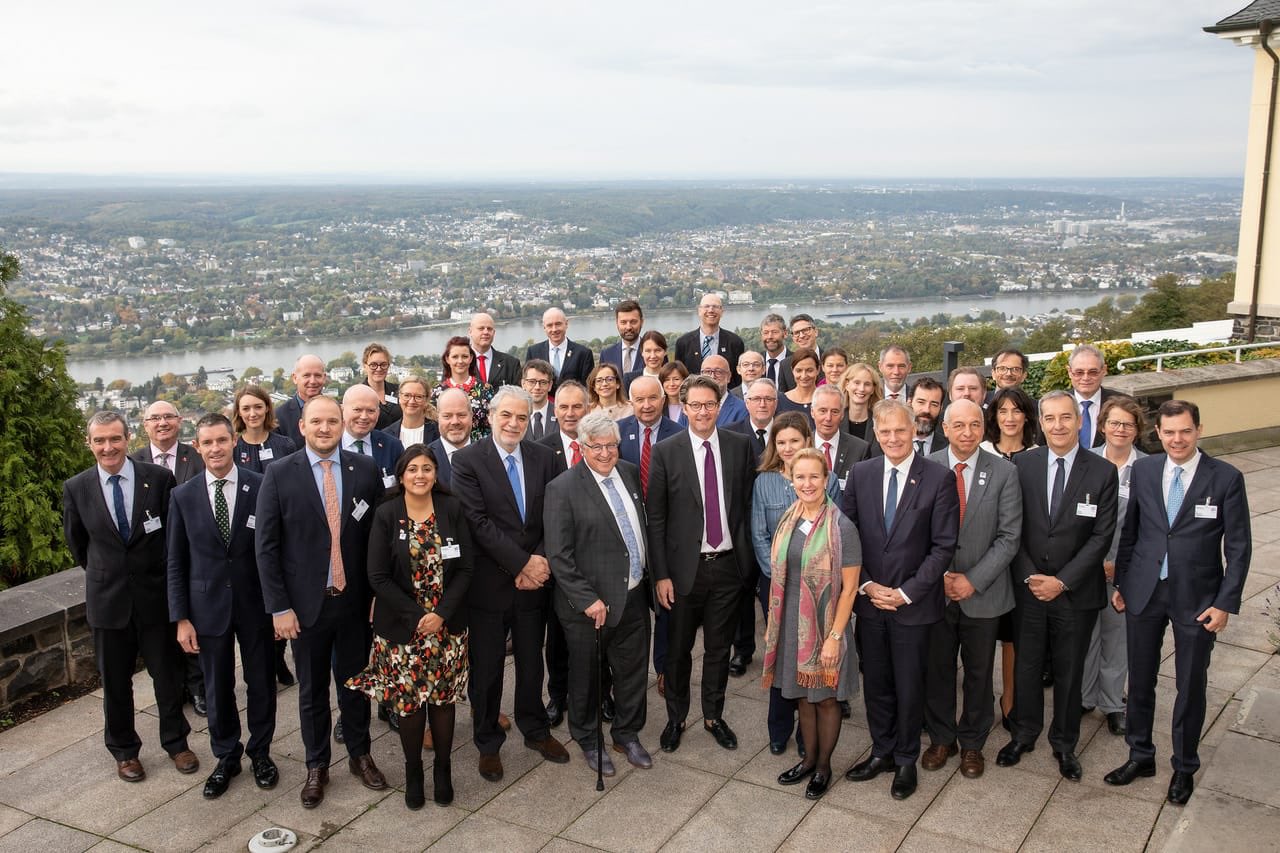50 YEARS OF PROTECTING THE GREATER NORTH SEA
Ministers from around Europe gathered in Bonn (Germany) this week on the invitation of German Federal Minister Andreas Scheuer to celebrate 50 years of successful cooperation in dealing with pollution of the North Sea by oil and other harmful substances. Within the framework of the Bonn Agreement, Ministers renewed and expanded their commitments for the protection of the Greater North Sea and its Approaches.
DOWNLOAD THE FULL PRESS RELEASE
The ministerial meeting, held on 11 October 2019, celebrated 50 years of successful cooperation, recognising the common benefit of cooperation to prevent, prepare for and respond to accidental and illegal marine pollution from maritime activities, and faced future challenges by renewing and expanding its Strategic Action Plan.
Andreas Scheuer, Federal Minister for Transportation and digital Infrastructure: “50 years after the constitution of the Bonn Agreement it has been an honour for me to welcome its members again in Bonn. We have been able to reach two important decisions: the extension in scope by including air pollution from ships and the geographical extension by the accession of Spain. Two decisions pointing the way for even better protection of the seas”.
The meeting welcomed the accession of Spain to the Bonn Agreement and the realignment of the Zone of Responsibility between France and Spain to include the Bay of Biscay with the aim to cover the main traffic route connecting the North Sea and the Mediterranean Sea. The meeting also extended the scope of action of the Agreement to prevent unlawful aerial emissions caused by shipping. Ministers welcomed a range of new major commitments to address new trends in maritime transportation and other maritime activities such as offshore oil and gas exploitation, and reiterated the fact that, despite the decrease in the number of observed spills during recent years, risks will always remain.
Bonn Agreement Secretary, Susana Salvador: “Even after 50 years of effective and result-orientated work, the Bonn Agreement continues to provide guidance and inspiration, showing how effective working together can be in responding to marine pollution incidents with the ultimate goal of protecting the marine environment”.
ENDS

Note for editors
- The Bonn Agreement is the mechanism by which the North Sea States, and the European Union (the Contracting Parties), work together to help each other in combating pollution in the North Sea Area from maritime disasters and chronic pollution from ships and offshore installations; and to carry out surveillance as an aid to detecting and combating pollution at sea. It is the oldest regional agreement established by governments for responding to pollution incidents.
- The North Sea States are Belgium, Denmark, France, Germany, Ireland, the Netherlands, Norway, Sweden, and the United Kingdom of Great Britain and Northern Ireland. Spain has become the 11th Bonn Agreement Contracting Party on 11 October 2019.
- The Bonn Agreement was signed in 1969 by the eight states bordering the North Sea: Belgium, Denmark, Germany, France, the Netherlands, Norway, Sweden and the United Kingdom, shortly after the oil tanker "Torrey Canyon" broke up off Cornwall in 1967 spilling 117 000 tonnes of oil in the first major pollution disaster affecting Western Europe. However, the Bonn Agreement was not activated until the late 1970s after two other major pollution incidents had occurred: the "Ekofisk" blow-out in 1977 and the "Amoco Cadiz" in 1978. The Agreement has continued to function effectively ever since and was extended in 1983 to include other harmful substances and in 1987 to cover cooperation in surveillance. The European Union became a Contracting Party in 1983. Further expansion took place in 2010 when Ireland joined, and the Agreement was widened to cover Irish waters and related Norwegian and UK waters.
- The vision of the Bonn Agreement is to minimise the threat of pollution from accidental and illegal pollution from ships and other maritime activities.
- The core work of the Bonn Agreement is to cooperate regionally in preventing and combating marine pollution in the Greater North Sea from ships and offshore installations; to carry out surveillance as an aid to detecting and combating pollution at sea; cleaning up after maritime disasters and pollution offences. These are the achievements that come from 50 years’ scientific, technical and operational work of the Bonn Agreement.
- The Greater North Sea supports diverse and productive ecosystems and is essential for the daily lives of millions of people. It also contains some the busiest shipping lanes in the world. Despite the overall decrease in the number of accidental oil spills in European waters, major accidental oil spills still occur at irregular intervals. Although land-based discharges constitute the largest source of oil that enters the ocean each year, accidental oil spills are still a major source of pollution accounting for about 10–15 per cent of all oil that enters the ocean world-wide every year.
- More information on the Bonn Agreement can be found at www.bonnagreement.org
- The Bonn Agreement area has been expanded to include the Bay of Biscay through the accession of Spain and the expansion of France’s zone of responsibility (map below).